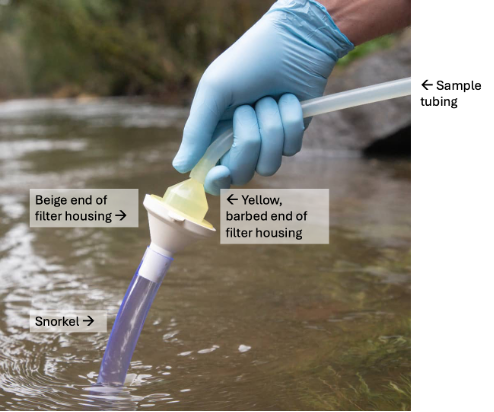
How COCO works
COCO monitors marine animals by collecting their DNA from the water! This is a technique known as environmental DNA or eDNA. By looking for genetic material in the water, we can tell what species were recently in an area.
Community members collect the samples and then mail them to Dalhousie University where we will process them to determine what animals the DNA came from.
All sampling materials, including shipping boxes to return filters, are provided to COCO volunteers for free! Species results will be emailed to community volunteers as well as posted here on the COCO website.

eDNA sampling machine. COCO volunteers will use this machine to collect eDNA samples. Sample collection involves pumping ocean water through a filter which will capture the DNA.

eDNA filters. COCO volunteers will use filters attached to a battery-powered machine to collect eDNA samples. Three (3) filters will be collected per sampling event and the filters will be sent to Dalhousie via pre-paid shipping box for processing. Image credit: Smith-Root.

